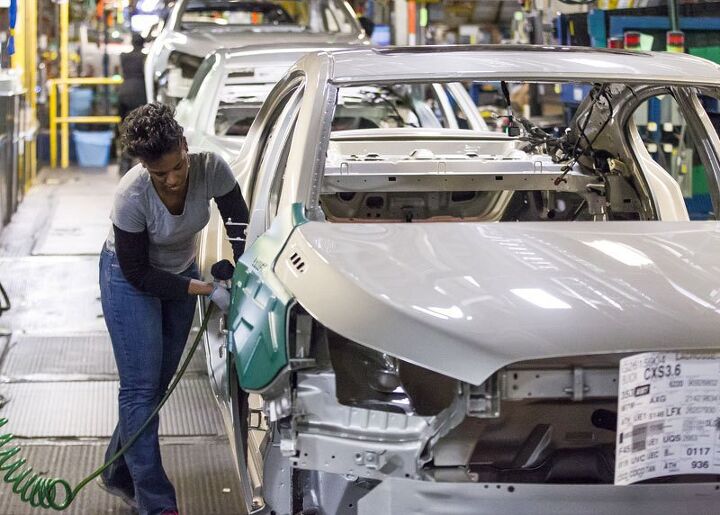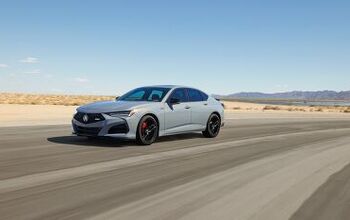QOTD: Do You NAFTA Go Back?

An “army” of lobbyists has come to Capitol Hill. American automakers are “speaking with a unified voice” in pursuit of a single goal. The business media and papers of record are pushing a message that hasn’t been this identical since this time last year, when they were competing with each other to see who could most strongly support a certain inevitable presidency.
What’s got everybody so upset?
President Trump has called NAFTA a “bad deal” and has promised to renegotiate it away. The “unified voice” with which corporations are opposing that renegotiation makes me personally a bit nervous. Surely they wouldn’t all be in favor of NAFTA if it amounted to anything more than a way to build cars (and Chevrolet Silverados!) in Mexico and then sell them to Americans?
I could be wrong. What do you think? Does NAFTA hafta go back?
[Image: General Motors]

More by Jack Baruth


































Comments
Join the conversation
So, let's say you're building a car in the US. Let's say the line rate is roughly 50 jobs an hour (or roughly 300-350k cars per year). A wage rate of 30$ an hour (about average for a line worker) would result in a burden rate around 45-50$ an hour per worker once benefits, etc. are figured in. Long story short, consider each line worker to cost about a buck a car. You probably need ~4,000 workers across two crews, so direct labor on the car is probably around 2,000$. The average line worker at a factory in Mexico seems to make somewhere around 3$ an hour according to the internet, and I have no idea what Mexican burden rates hit. If we keep the math easy (say, 5$), you see you go to 200$ labor per car. That's almost 2 grand in added profit and lowered MSRP. That's what the automakers are chasing. And note that this doesn't vary a whole lot with the size of the car or how "nice" it is. This is why you see the economy cars all running to Mexico, but no one really cares to send a big pickup (making >$10k a pop) down there.
It's a small step. Stand in line and have the cashier check you out. Those self-serve checkouts take away cashier jobs. A small start, but a beginning.
"...answer is better education for working Americans" The reality is the US (and many other) economy can't absorb them, so many college grads have low-wage jobs like Walmart and waiter/waitress--and a lot of college debt. "..can't make a $50 sweater at US wage rates.." well then, either US wage rates are too high OR the cost of the sweater is too low. "Free trade" is great if you have a good job, not so good if you lost your job at XYZ Manufacturing and can't find a comparable one. Human beings are not "capital" (money)--they don't flow. My favorite ".... can't tell me that the savings generated by using cheaper labor in Mexico didn't result in new opportunities and wealth creation" Well, by that argument, you can't tell me those "savings" DID create new wealth, can you? However, you can see the effects of closing XYZ Manufacturing in middle America on the people and the community in small-town American. They are very real. That's why people from those towns, as well as enough people with "good jobs" and advanced degrees voted Trump into the White House.
The worst thing that could happen would be swift and sudden break from NAFTA. As others have stated, the market has adapted to fit the environment and if an orderly transition isn't baked into any change it's going to create a lot of transient cost spikes as things realign and this will drive some companies out of business almost overnight. I recently read a piece where a reporter talked to several people in a Pennsylvania coal town almost a year after the election. Although there were several quotes from the article that made my head spin, the most instructive one was from the owner of a light manufacturing business who wants to grow his business and is ready to hire and train welders. Given the unemployment in the area you would think people would be lined up -- but no, because the unemployed are either too strung out on heroin to hold a job, or else refuse to take the job because it doesn't involve a coal mine (or both). I get that there's some old-dog-new-tricks at play here, but at some point people have to compromise at least a little.